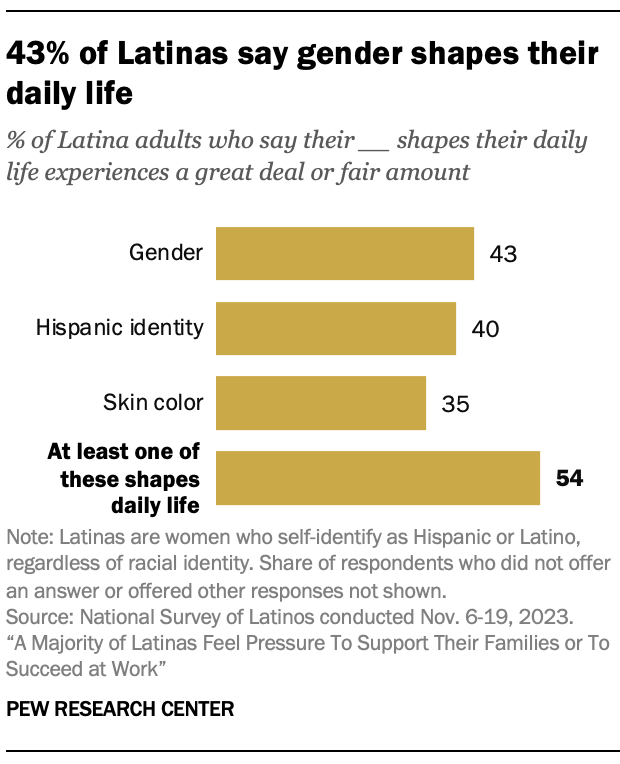Giving Compass' Take:
- Pew Research Center explores the experiences of Latinas and their perspectives on sexism, harassment and discrimination.
- How can this research help highlight the intersectional issues of race and gender?
- Learn how donors can effectively bolster Latina leadership.
What is Giving Compass?
We connect donors to learning resources and ways to support community-led solutions. Learn more about us.
About four-in-ten Hispanic women say that being female or Hispanic impacts their daily lives. In fact, Hispanic women are more likely than Hispanic men to say sexism is a problem in the workplace, schools and the media.
Differences by gender disappear in other areas. Similar shares of Hispanic women and Hispanic men say they have been treated as if they’re not smart.
This chapter explores Latinas’ views of sexism and their experiences with harassment and discrimination.
The impact of gender, Hispanic identity and skin color on the lives of Latinas

Substantial shares of Hispanic women say gender (43%), Hispanic identity (40%) and skin color (35%) shape their daily life experiences a great deal or a fair amount. Overall, 54% say at least one of these shapes their daily life.
By comparison, Hispanic men are somewhat less likely than Hispanic women to say gender (38%), Hispanic identity (36%) and skin color (30%) impact their daily lives a great deal or a fair amount.
Read the full article about survey data on Latinas' identities and experiences by Luis Noe-Bustamante , Sahana Mukherjee and Jens Manuel Krogstad at Pew Research Center.